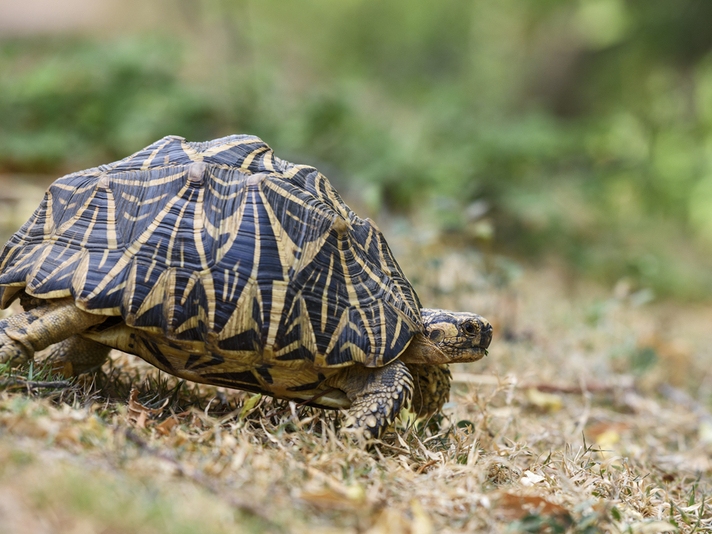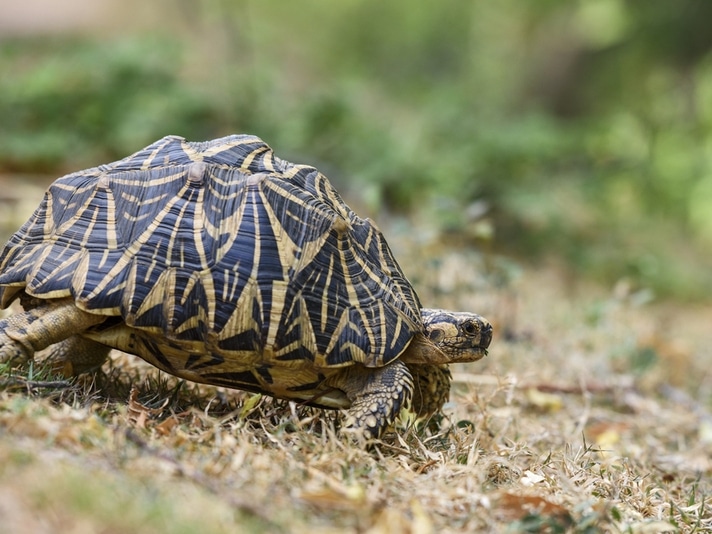Even though Indian star tortoises are widely captive bred for the pet trade, wild caught specimens are still illegally collected.
Customs officials in Chennai, India have seized 490 Indian star tortoises (Geochelone elegans) that were labeled as mud crabs, after the reptiles were found abandoned at a fishing harbor in the city.

DAVID HAVEL/SHUTTERSTOCK
Even though Indian star tortoises are widely captive bred for the pet trade, wild caught specimens are still illegally collected.
The tortoises, a threatened species listed as vulnerable by the International Union for Conservation of Nature, were found packed in boxes by a team of Indian customs officials and Chennai Police officers. According to the Times of India, the reptiles were destined to be smuggled out of the country via a Thai Airlines cargo flight. The packaging determined the turtles were destined for Kuala Lumpur, Malaysia.
According to International Business Times, customs officials were chasing two marijuana dealers who eluded capture when the officials happened upon the boxes of tortoises. It is believed the tortoises came from Andhra Pradesh state in India.
The tortoises were handed over to forest department officials, according to the Times of India. The export of Indian star tortoises is banned in India under the Wildlife Protection Act of 1972.
According to the TRAFFIC wildlife monitoring network, in 2017, more than 6,000 Indian star tortoises were confiscated in 11 seizures around the world. Six of those seizures occurred in India and Sri Lanka.
In the United States, the Indian star tortoise is also widely captive bred and have been for many years. The reptile is protected in its natural range in India, Sri Lanka and Pakistan. It is a threatened species listed as vulnerable by the International Union for Conservation of Nature.



